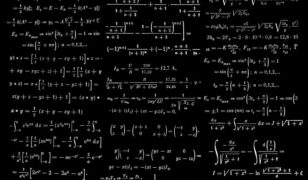IARPA to host proposers’ day for LogiQ program
 On April 16, the Intelligence Advanced Research Projects Activity (IARPA) posted the following notice about the Logical Quibits (LogiQ) program, for which it anticipates releasing a broad agency announcement (BAA) (Solicitation Number: IARPA-BAA-15-10).
On April 16, the Intelligence Advanced Research Projects Activity (IARPA) posted the following notice about the Logical Quibits (LogiQ) program, for which it anticipates releasing a broad agency announcement (BAA) (Solicitation Number: IARPA-BAA-15-10).
The Intelligence Advanced Research Projects Activity (IARPA) will host a Proposers’ Day on 19 May 2015 at the University of Maryland Stamp Student Union to provide information to potential proposers on the objectives of an anticipated Broad Agency Announcement (BAA) for the Logical Qubits (LogiQ) program. The Proposers’ Day will serve as a forum for potential proposers to discuss synergistic capabilities and explore teaming opportunities; familiarize themselves with IARPA’s interest in LogiQ; and obtain answers to their questions regarding the program, potential BAA and solicitation process.
Program Description:
The LogiQ program in IARPA’s Safe and Secure Operations (SSO) Office is seeking creative technical solutions to the challenge of encoding imperfect physical qubits into a logical qubit that protects against decoherence, gate errors, and deleterious environmental influences. Underpinning the program’s strategy to build a logical qubit is a push for higher fidelity in multi-qubit operations, the pursuit of dynamically controlled experiments in multi-qubit systems to remove entropy from the system during computation, and characterization and mitigation of environmental noise and correlated errors. Recognizing that success in building a logical qubit is critically dependent on maintaining the proper balance between basic science and engineering, LogiQ looks to bring together diverse technical skills among leading physicists, engineers, and computer scientists.
While quantum information processing has witnessed tremendous advances in high-fidelity qubit operations and an increase in the size and complexity of controlled quantum computing systems, it still suffers from physical-qubit gate and measurement fidelities that fall short of desired thresholds, multi-qubit systems whose overall performance is inferior to that of isolated qubits, and non-extensible architectures-all of which hinder their path toward fault-tolerance. In order to capture the full range of issues that impact the development of a larger quantum processor, it is important to focus on improving all of these aspects concurrently. Moreover, it is essential to develop relevant error budgets and statistics that can robustly estimate system performance from isolated performance metrics.
The LogiQ program attempts to tackle these problems by building a logical qubit from constituent physical qubits. This focused effort will combine improved multi-qubit operational fidelity with extensible integration and closed-loop feedback capable of preserving an arbitrary superposition in the logical-qubit code subspace. LogiQ aims to:
- Experimentally address the true complexity and requirements for encoding quantum information into a logical subspace;
• Ascertain the complete error environment in a system of over ten connected physical qubits;
• Characterize temporal and spatial correlations affecting system performance;
• Choreograph and optimize open loop control of individual qubits throughout gate operations;
• Implement the closed loop feedback needed to compensate for errors and determine the required level of synchronicity and operational scheduling;
• Characterize crosstalk and determine the level of mitigation required for high-fidelity logical-qubit operations;
• Establish the logical-qubit requirements of classical control infrastructure, latencies, speed and fidelity of measurement, etc.;
• Develop classical controllers and measurement devices to manipulate physical qubits appropriate for logical-qubit processing;
• Develop the capability for timely physical qubit re-use and ancilla reset, and perform dynamically controlled experiments;
• Include extensibility in the logical qubit design to provide flexibility for future, more complex systems.
Attendees must register no later than 5:00 PM EDT on 12 May 2015 through the Proposers’ Day website: http://events.signup4.com/LogiQPDRegistration_May2015.
Additional information is available here.
Source: FedBizOpps








